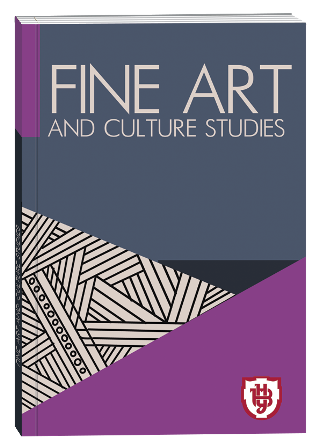РЕФЛЕКСІЯ ЯК НЕВІД’ЄМНА СКЛАДОВА ПРОФЕСІЙНОГО САМОПІЗНАННЯ У ПРОЦЕСІ ВОКАЛЬНОЇ ПІДГОТОВКИ
DOI:
https://doi.org/10.32782/facs-2025-1-22Ключові слова:
рефлексія, професійне самопізнання, вокальна підготовка, самоаналіз, саморозвиток, виконавська майстерність, критичне мислення, педагогічні стратегіїАнотація
У статті розглядається рефлексія як невід’ємна складова професійного самопізнання студентів-вокалістів. Рефлексія визначається як важливий психолого-педагогічний механізм, що сприяє глибшому усвідомленню студентами власної виконавської діяльності, аналізу сильних і слабких сторін, а також побудові ефективних стратегій самовдосконалення. Метою дослідження є визначення ролі рефлексії у процесі вокальної підготовки та обґрунтування методичних підходів до її розвитку. Акцентовано увагу на тому, що рефлексія не лише допомагає студентам усвідомлювати свої помилки та досягнення, а й формує відповідальне ставлення до професійного розвитку, сприяючи мотивації до навчання, самоконтролю та емоційній стійкості. Наукова новизна полягає у висвітленні взаємозв’язку між рефлексією та потребою у професійному самопізнанні, що є визначальним фактором у формуванні індивідуального творчого стилю студента. Визначено ключові чинники, що впливають на цей процес, зокрема рівень мотивації до навчання, особистісні якості студента, методику викладання та загальний освітній контекст. Окреслено методи розвитку рефлексивних навичок у процесі вокальної підготовки, серед яких робота з аудіо- та відеозаписами власного виконання, застосування самоаналізу, обговорення виконаних творів у групах, використання рефлексивних запитань та отримання конструктивного зворотного зв’язку від педагогів. Особливу увагу приділено ролі викладача у створенні сприятливого освітнього середовища, що стимулює рефлексію та професійне самопізнання студентів. У висновках підкреслено, що розвиток рефлексивних навичок є важливою умовою професійного становлення вокаліста, оскільки сприяє формуванню самостійності, критичного мислення та усвідомленого підходу до виконавської діяльності. Запропоновані у статті методи можуть бути використані викладачами вокалу для вдосконалення навчального процесу, що сприятиме не лише професійному зростанню студентів, а й розширенню їхніх творчих можливостей.
Посилання
Брилін Б. А., Козир А. В. Здатність до мистецької рефлексії як ознака фахової майстерності майбутніх учителів музики. Науковий вісник Миколаївського державного університету імені В. О. Сухомлинського. 2010. Вип. 1 (31). С. 11–18.
Вихрущ В. О. Педагогіка рефлексії у професійній діяльності викладача вищого навчального закладу. Науковий часопис Національного педагогічного університету імені М. Драгоманова. Серія Педагогічні науки: реалії та перспективи. 2018. Вип. 60. С. 86–90.
Іващенко А. І. Професійна рефлексія як механізм саморозвитку майбутніх психологів : дис. ….канд. психолог. наук :19.00.07. Київ, 2020. 239 с.
Носко Л. Методологія поняття рефлексії як психолого-педагогічної категорії. Проблеми сучасної психології: збірник наукових праць К-ПНУ імені Івана Огієнка НАПН України. 2015. Вип. 28. С. 354–364.
Олексюк О. М. Сучасна музична освіта : інноваційний аспект. Вісник «Педагогіка». 2001. № 5. С. 5−12.
Поняття «професійна рефлексія» та її значущість у практичній діяльності майбутнього психолога. Вісник Чернігівського національного педагогічного університету. 2015. Вип. 128. С. 116–120.
Рудницька О. П. Педагогіка: загальна та мистецька : навчальний посібник. Тернопіль : Богдан. 2005. 360 с.
Стахевич О.Г. Основи вокальної педагогіки : навчальний посібник. Суми: СумДПУ імені А.С. Макаренка. 2002. 92 с.
Чжан Цзінцзін. Методика формування мистецької рефлексії майбутнього вчителя музики в процесі вокального навчання: автореф. дис. … канд. пед. наук : 13.00.02. Київ, 2016. 20 с.







